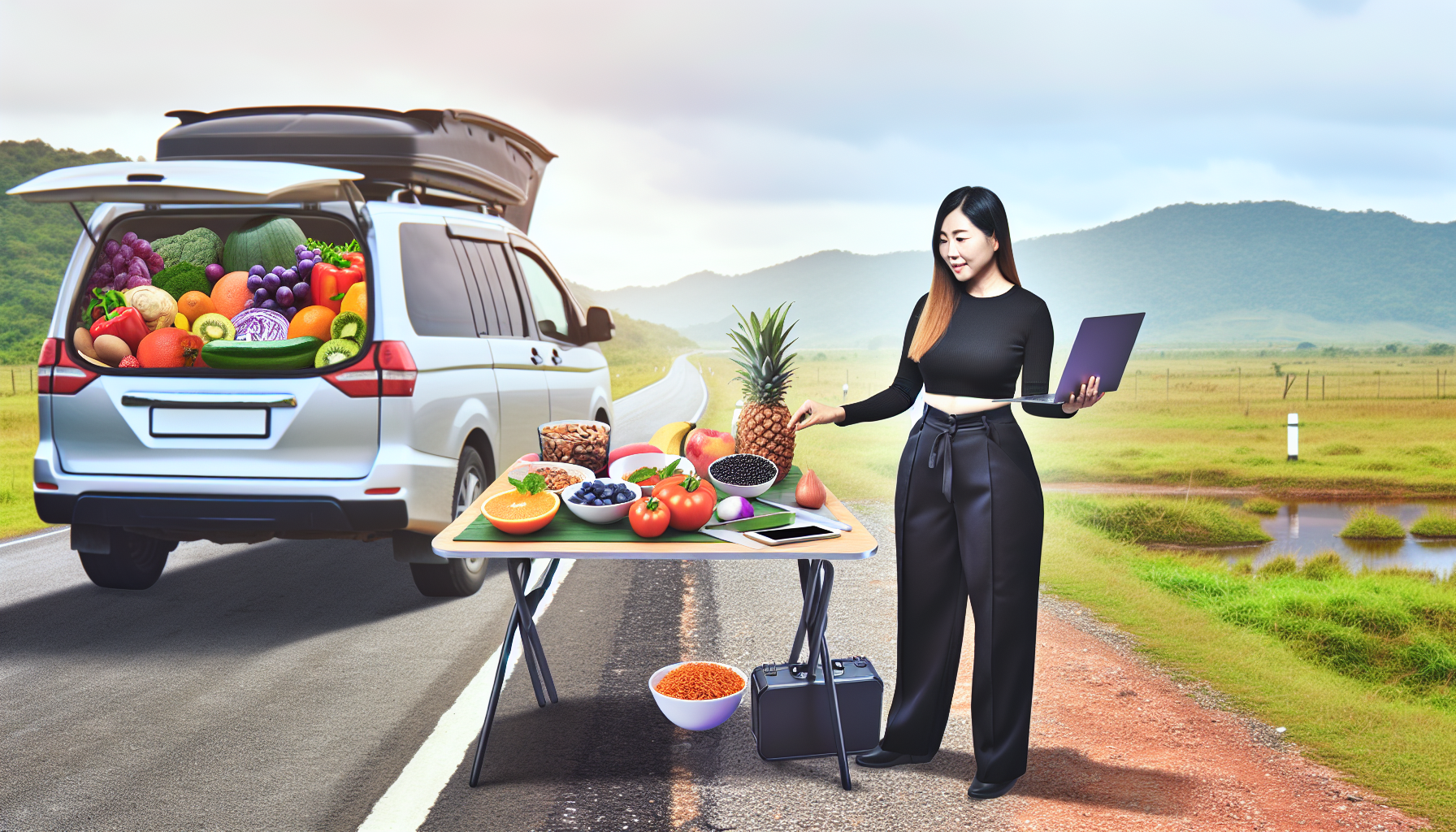How to Stay Healthy on the Road: Nutrition Tips for Digital Nomads
Whether lounging on a Bali beach or exploring the streets of Barcelona, being a digital nomad often means balancing the lure of new adventures with the necessity of maintaining good health. Keeping your nutrition on point while constantly on the move might seem challenging, but it’s absolutely attainable with a few mindful habits. Here’s why this is a must-read, especially if you are a globe-trotting freelancer looking to blend business with pleasure without compromising your wellbeing.
Key Takeaways:
- Plan your meals ahead to avoid fast food traps.
- Incorporate local, fresh produce into your diet.
- Stay hydrated, especially in tropical or hot climates.
- Maintain a balanced diet by learning quick, healthy recipes.
- Utilize supplements when necessary, but focus on whole foods first.
Meal Planning: Avoid the Fast Food Traps
Traveling comes with a host of unexpected challenges, one of which is finding time to prepare nutritious meals. Planning ahead is your best defense against the convenience of calorie-laden fast foods.
Example: Use an app like “MyFitnessPal” to plan and track your meals ahead of time.
Quote: “Failing to plan is planning to fail.” – Alan Lakein
Meal Planning Strategies:
- Research Destination: Know the local grocery stores and markets.
- Prep Basics: Cook simple staple foods like quinoa or grilled chicken.
- Store Healthy Snacks: Pack nutritious options like nuts, fruit, or yogurt.
Embrace Local Produce
Embracing local foods can enhance your travel experience while keeping you healthy. Local markets are treasure troves of fresh fruits, vegetables, and unique ingredients that you might not find back home.
Example: When in Thailand, dive into their fresh mangoes or papayas instead of processed snacks.
Quote: “Eating locally and seasonally is the cornerstone of a sound nutritional diet.” – Whole Foods Market
Benefits:
- Cultural Experience: Tasting the local cuisine provides a deeper cultural connection.
- Freshness: Locally sourced food is often fresher and less processed.
- Nutritional Value: Fresh foods are typically more nutritious than processed alternatives.
Hydration: Your Travel Hydration Strategy
You might be hopping from one humid climate to another, and staying hydrated can be tougher than it seems. Always prioritize drinking sufficient water throughout your travels.
Example: On a day tour in the Moroccan desert, carrying a refillable water bottle is a lifesaver.
Hydration Hacks:
- Carry a Reusable Bottle: Fill it up wherever you can.
- Set Reminders: Use a hydration app to remind you to drink water.
- Infuse Water: Add slices of lemon or cucumber for flavor.
Easy Recipes for Digital Nomads
Knowing a few simple, healthy recipes can save you time and ensure you’re eating well. These recipes should be easy to prepare even with limited kitchen resources.
Example: A quick quinoa salad with veggies and a squeeze of lemon is refreshing and nutritious.
Quick Recipes:
- Overnight Oats: Mix rolled oats with milk or yogurt and let it sit overnight.
- Stir-Fry: Sauté various veggies with tofu or chicken and soy sauce.
- Smoothies: Blend fruits, vegetables, and a protein source like Greek yogurt.
Supplemenation: Mind the Gaps
While whole foods should be your primary source of nutrients, supplements can help fill in the gaps when necessary. Always consult a healthcare provider before starting any supplement regimen.
Example: Traveling through areas with limited fresh produce might require a multivitamin or vitamin C supplement.
Supplements Table:
| Type of Supplement | When to Use | Example Brands |
|---|---|---|
| Multivitamins | Limited access to fresh foods | Centrum, One A Day |
| Probiotics | Digestive health on the go | Culturelle, Renew Life |
| Vitamin D | Limited sun exposure (winter trips) | NatureWise, Nordic Naturals |
Living the Digital Nomad Life: Practical Tips
- Cooking Classes: Take a local cooking class to learn about healthy local ingredients and recipes.
- Farmers’ Markets: Make visiting local farmers’ markets a part of your travel routine.
- Portable Utensils: Carry a set of portable utensils to avoid using plastic or relying on less sanitary options.
Traveling doesn’t have to mean sacrificing your health. By planning meals, embracing local produce, staying hydrated, learning quick recipes, and utilizing supplements smartly, you can enjoy your nomadic lifestyle without compromising on nutrition. For further insights, you might want to explore resources on nutrition specifically tailored for travelers or follow nutritionists like Marion Nestle and Dr. Mark Hyman.
FAQ
Q1: How can I ensure I’m getting enough fruits and vegetables while traveling?
A1: Visit local markets, take advantage of hotel buffets with fresh produce, or carry pre-packed veggies and dips.
Q2: What are some portable high-protein snacks for travel?
A2: Consider packing nuts, seeds, jerky, or protein bars to keep your protein intake up while on the go.
Q3: How do I maintain good hydration on long flights?
A3: Bring a refillable water bottle, avoid caffeine and alcohol, and consider oral rehydration solutions if necessary.
